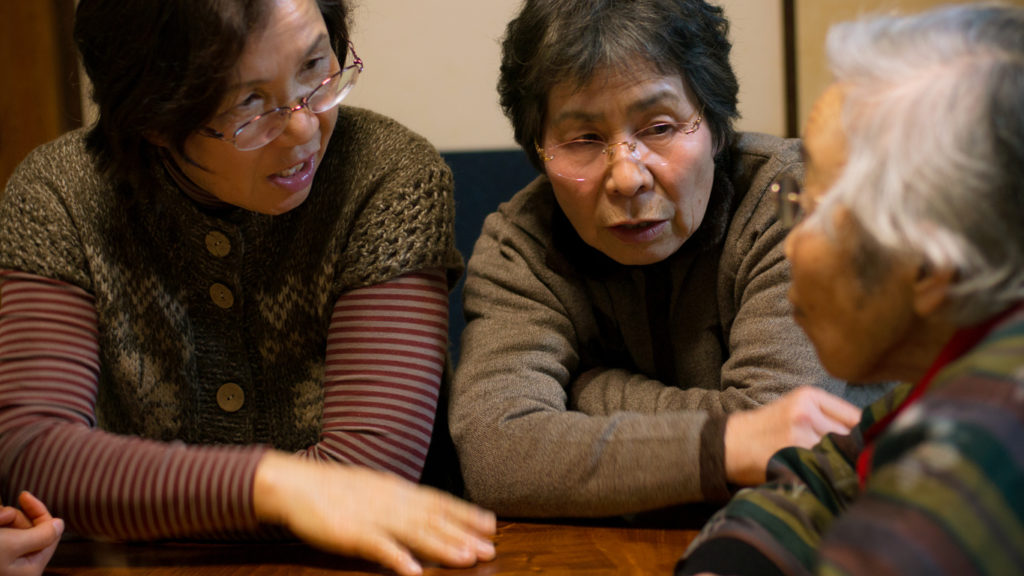Polite But Not Discreet: Why Is Japan So Open About Body-Talk?
On why it's common in Japan to ask "What's that on your face?" and more
For such a polite culture, foreign women can receive a lot of blunt comments about their looks and bodies. But why is this culturally accepted here?
Though common wisdom tells us that Japanese communication is indirect, foreign women may be surprised at the directness with which Japanese people comment on other people’s physical appearance. For many foreigners, the openness with which Japanese people approach body matters may be quite puzzling and even offensive at times. But on the flip side of the coin, could this be a positive thing? This question (and my fair share of experiences with interesting comments in Japan) led me to dig a bit deeper.
Me: Hisashiburi, M san! How have you been?
M: What’s that on your face?!
Me: (reaching self-consciously to an admittedly large spot on my face) Oh this? It’s normal for me. Don’t worry.
M: It’s really big!!!
Me: (trying desperately to remember the word for acne in Japanese in hopes to end this conversation topic) I know but really, it’s no problem. I can’t remember the word, but it’s like teenagers have… erm… nikibi!
M: It’s too big for nikibi. I think it’s herpes.
Me: …What?? No, it’s just nikibi.
M: (potentially misinterpreting my unfavorable reaction as a perceived attack on my virtue) Did you know that you can get herpes without having sex?
Me: Yes M san, I did know that. But honestly, it’s not herpes. And it’s okay.
Polite. Indirect. Considerate. These are words often used to describe Japanese people. In my modest two years of living in Japan, I have found this to be true in most respects. But there is one subject where Japanese people appear to be surprisingly blunt: matters of the physical body.
‘Japanese people are polite, but they are not discreet.’
Amongst British adults, commenting on other people’s appearance (especially in case the subject involves something they can’t change) is a touchy subject. I might discuss body issues with a few trusted friends occasionally but in our day-to-day lives you might think British people don’t have bodies at all. Before coming to Japan I used to think that if Brits are 7 on the indirectness scale, Japanese politeness is cranked up to an 11. Thanks to this presumption, I was not prepared for the barrage of ‘nice comments’ when I came to Japan.
“You have a nice body. Thin. You’re a foreigner, so I was surprised.” “Foreigners are shaped differently from Japanese, huh?” “Your skin is so white and your legs are so long!!”
In my brief stint as an ALT, a male teacher would regularly tell me that I was beautiful while I was teaching. There were a number of students with good English in that class who no doubt understood, which really embarrassed me. It made me feel self-conscious at work and I can’t deny it was one of the reasons I was glad to leave that job.
Polite but not discreet
However, the more time I spent here the more I observed how Japanese people talked to each other about their bodies and came to understand that, while the differences in foreigners’ appearances attracted more attention, this bluntness wasn’t just reserved for us — it’s how Japanese people talked to each other, as well. Obviously, every Japanese person is an individual with a unique perspective but the overall reaction when I’ve raised this cultural difference with my Japanese friends has been a perplexed one. While my friends can understand the uncomfortable feeling of having your appearance commented on by a someone at work, they are surprised that I react awkwardly to similar remarks in social situations.

“Saying you’ve lost weight is a compliment. If it’s a compliment, why do you mind?” When a European friend raised the issue with her Japanese Studies teacher, the professor responded, “Japanese people are polite, but they are not discreet.”
[W]hile the differences in foreigners’ appearances attracted more attention, this bluntness wasn’t just reserved for us — it’s how Japanese people talked to each other, as well.
The body-positive feminist in me wants to bash Japan for its insensitivity, but my time here has shown me that there is another side to the story. I was uncomfortable with the constant attention when I arrived but as the months went on, the many comments I’ve had about my body and looks started not to bother me. In fact, it’s while being in Japan that I have finally started to make peace with myself — and my body. Could this ‘bluntness’ reveal a Japanese version of body positivity, one tied up to a connectedness with the physical body?
Body positivity: Cultural “normalcy”
Tourists and long-term expats alike often comment on how onsen have helped their body image. If you don’t come from a culture where it’s normal to bathe or enjoy the sauna nude with others, then the first time stripping off to get into the onsen can be terrifying. Once the nerves subside and you start to enjoy the wonderful warm water however, many women find it liberating. Scantily clad women are everywhere in films, adverts and pornography but you can go through years in your life without knowing what a normal naked woman actually looks like when things aren’t bronzed, waxed and tucked for the camera. In the Japanese onsen, I learned that most women don’t have perfect bodies and that’s OK.
 Although a poorly phrased comment on a bad day can still make me want to hide — rather than making me more conscious about myself — I feel that Japan has improved my body awareness. Sometimes, I feel like we Brits are brains in jars. As well as being famous prudes, I do think a lot of British people are sort of out of sync with their bodies. Even if we take good care of ourselves, it sometimes feels like the body is treated like a kind of an afterthought, a flesh prison merely housing the important stuff rather than something that should be integrated with the mind and soul.
Although a poorly phrased comment on a bad day can still make me want to hide — rather than making me more conscious about myself — I feel that Japan has improved my body awareness. Sometimes, I feel like we Brits are brains in jars. As well as being famous prudes, I do think a lot of British people are sort of out of sync with their bodies. Even if we take good care of ourselves, it sometimes feels like the body is treated like a kind of an afterthought, a flesh prison merely housing the important stuff rather than something that should be integrated with the mind and soul.
In the Japanese onsen, I learned that most women don’t have perfect bodies and that’s OK.
While making someone feel bad about their weight is obviously not acceptable, I think that, perhaps, we go too far in my country in making our bodies such a taboo topic. Everyone has a body, it’s not perfect; it’s nothing to be ashamed of. You don’t need to hide. It’s okay.
Whether it’s because of the onsen, the prevalence of mindfulness in Japan, or some other mysterious secret of one of the most healthy societies in the world – I feel that I am no longer a brain in a jar. I doubt that I will ever be exactly ‘comfortable’ with the constant comments on my appearance, nor that I will make those comments to other people. But now, at least, I’m trying to combine the Japanese body awareness with European discretion. And occasionally brush the comments off — just like I did with the herpes conversation.
Have you had a body-related awkward conversation in Japan? Has someone ever commented on your looks in a way that sounded inappropriate to you? Share your stories in the comments.
















Leave a Reply